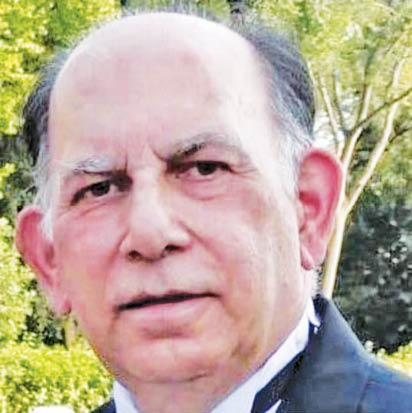 The family physician or family doctor is a vanishing breed. Young new doctors don’t seem interested in ‘family medicine’ anymore. Way back in August 2019, the Times of India reported that the General Physicians Association (GPA)’s Greater Mumbai branch had 3,000 members, while the Indian Medical Association (IMA)’s Mumbai list had 13,000 doctors. Apparently, the trend seems to be ‘specialization’.
The family physician or family doctor is a vanishing breed. Young new doctors don’t seem interested in ‘family medicine’ anymore. Way back in August 2019, the Times of India reported that the General Physicians Association (GPA)’s Greater Mumbai branch had 3,000 members, while the Indian Medical Association (IMA)’s Mumbai list had 13,000 doctors. Apparently, the trend seems to be ‘specialization’.
We spoke to our friend and family physician Dr. Nusly P. J. Pocha about what it means to be a ‘family doctor’ and why they seem to be a vanishing breed. Dr. Pocha put it quite bluntly, “Being a family doctor requires a lot of commitment and giving your time to the patient with patience and understanding. Besides it’s not lucrative.”
But what makes a ‘family doctor’ special? According to Dr. Pocha, “Because the family doctor knows the patient and his family personally, he knows the patient’s medical history over the years, and is able to guide the family in making right and timely decisions.” A patient may call the ‘family doctor’ at any time of the day or night and seek timely advice (including over the phone) in case of medical distress. For the elderly or disabled, a ‘home visit’ by the family doctor is a great boon. Indeed, a family doctor is like a family member.
What made Dr. Pocha take up ‘family medicine’? He says, “Since the age of ten, I’d observe my grandfather practice and would accompany him on his home visits. He told me that if I wished to be a family doctor, I must follow in his footsteps and commit myself to the service of those in need of medical attention 24/7.”
We asked him what was the high point in his fifty-two years of medical practice; he promptly answered, “Qualifying in Aviation Medicine at the age of forty years!” Aviation medicine, also called flight medicine, is preventive and occupational medicine, in which the patients/subjects are pilots, aircrew or frequent fliers. This specialty strives to treat or prevent conditions to which they are particularly susceptible.
But what makes ‘Aviation Medicine’ different from regular medicine? He gave us the example of a pilot who passed out mid-flight. The co-pilot had to make an emergency landing in Mumbai. Pocha rushed to the airport to discover that the pilot was prescribed a medicine by a general practitioner for a cold and the medicine had adverse effect on the pilot at high altitude in the pressurized cabin. Had the pilot consulted a doctor of aviation medicine, the line of treatment would have been different and this in-flight emergency could have been averted.
What Dr. Pocha enjoys most about his work is the personal bonding with his patients. If you enjoy getting to know your patients and building relationships, family medicine offers amazing access to longitudinal care, as you can see patients from the time they’re born through adulthood. He observed that while Parsis have longevity, they are also prone to certain diseases, particularly hypertension and osteoarthritis. While these could be lifestyle related diseases, G6PD deficiency, diabetes and proclivity to cancer (of the breast in women) and prostrate (in men) is largely genetic.
COVID has been a landmark in the medical profession and Family Physicians have played a large part in assuaging worries and deep hurt in families ravaged by the pandemic. “Through the entire pandemic, I have been at the bedside of my patients and their families, even at cost of worrying about my wife’s health – this is a time when commitment to the patient is paramount. Sadly, I lost a couple of patients and some friends,” rues Pocha!
Although a man of scientific temper, Dr. Pocha is deeply religious and makes it a point to pray at the Agyari regularly, if not every day. He feels the Zoroastrian religion gives one a higher sense of purpose in life. The Zoroastrian prayers too have a healing effect on the body and mind. In his words, “Practice of the Zoroastrian religion is the path to happiness and a positive and productive life!”
- In Search Of The Soul - 5 April2025
- Why Pray In A Language We Do Not Understand? - 29 March2025
- Celebrate Nature’s New Year With Purity And Piety of Ava - 22 March2025
